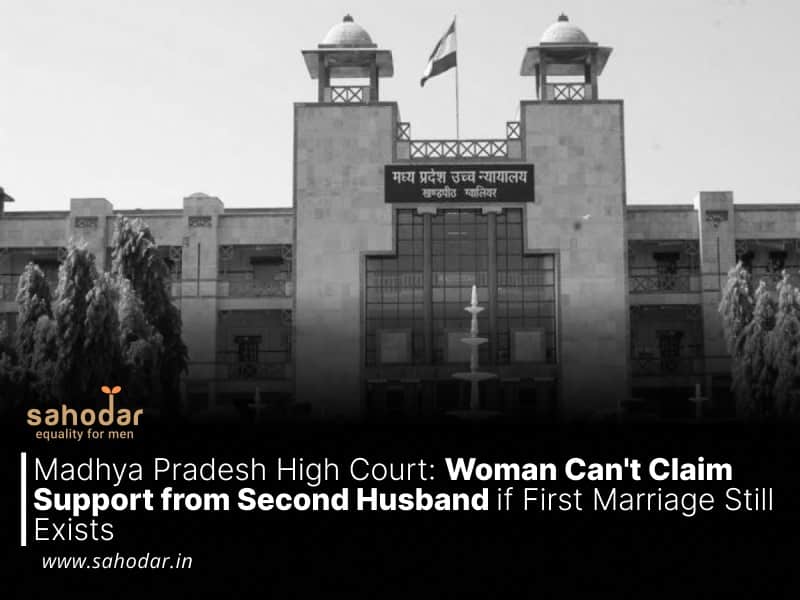The Madhya Pradesh High Court declined to overturn a family court’s decision denying maintenance to a woman due to her ongoing marriage to another man. Emphasizing the necessity of being a “legally wedded wife” to claim maintenance under Section 125 CrPC, Justice Prem Narayan Singh, presiding over a single-judge bench, upheld the ruling. However, he noted that the petitioner-woman could pursue alternative avenues for relief, including seeking compensation under Section 22 of the Protection of Women from Domestic Violence Act, 2005.
“A woman, having solemnized second marriage to another person, is only entitled to get maintenance from that person, when the first marriage has been declared either null and void or she has obtained a divorce decree from her first husband… the petitioner No. 1 could not get divorce from her earlier husband/Bhagwansingh and could not file any proof of getting divorce…”, the court clarified why maintenance cannot be granted in the case after referring to recent case laws like Sangeeta Rathore v. Naresh Rathore (2023) and Rajkumar Agrawal v. Sarika (2023) decided by the single judge bench of Justice Prem Narayan Singh itself.
The High Court declined to modify the maintenance amount awarded to the daughter born from the relationship, despite a request in the revision petition to increase it from Rs 4000 to Rs 5000, citing the father’s current income as the reason. However, the Court noted that the daughter could seek a review of the allowance before the Family Court under Section 127 CrPC for adjustments based on changing circumstances.
In dismissing the revision petitions filed by both the woman and her alleged husband under Section 19(4) of the Family Court Act, 1984, the Court reaffirmed established legal principles, as seen in previous cases such as Bhagwandas v. Panpati (2023). While expressing empathy for women from disadvantaged backgrounds losing entitlement to maintenance without their fault, the Court reiterated that a woman with a living spouse would be ineligible for maintenance from her supposed second husband.
The Court made a distinction from a case law cited by the woman’s counsel, where the apex court aimed to prevent the husband from benefiting from his deceit. In the case of Badshah v. Urmila Badshah Godse (2014) 1 SCC 188, relied upon by the woman, the husband concealed his first marriage and deceived his second wife.
The petitioner argued that her first marriage occurred when she was a minor, suggesting it should be considered null and void. However, the Court emphasized that even if a bride is a minor at the time of marriage, it does not invalidate the marriage under Section 11 of the Hindu Marriage Act.
Furthermore, the High Court noted the woman failed to prove the annulment of her first marriage solemnized under Hindu Saptapadi custom. It clarified that while an illegitimate daughter may be granted maintenance under Section 125 Cr.P.C, an illegitimate wife is not entitled to maintenance.
According to the petitioner’s account, she is a homemaker with limited education. She has been living separately from her second husband since 2015 due to domestic violence and dowry demands from her second husband and in-laws.

